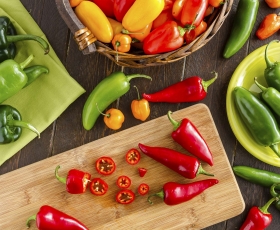Introduction
In today's quickly advancing food industry, businesses are seeking sustainable services to fulfill the growing demand for top quality food products while minimizing their environmental influence. Contract food manufacturing has become a sensible choice for companies wanting to outsource their production needs while maintaining control over item advancement and also quality assurance. This post checks out the idea of contract food manufacturing in Australia and its role in advertising sustainability within the food industry.
The Increase of Contract Food Manufacturing in Australia
Understanding Contract Food Manufacturing
Contract food manufacturing is a critical collaboration between a brand name owner and a contract supplier, where the last produces products in support of the former. This plan permits brand name proprietors to concentrate on advertising, item advancement, as well as circulation while leveraging the knowledge and also resources of specialized contract manufacturers.
Benefits of Agreement Food Manufacturing
Cost Performance: Contract food manufacturing removes the demand for significant capital investments in infrastructure, tools, as well as workforce. This cost-saving procedure allows brand names to designate their sources in the direction of various other important locations of company growth. Scalability: As need for a particular item fluctuates, agreement suppliers can swiftly readjust manufacturing levels to accommodate market requirements. This adaptability ensures that brand names can meet customer demand without excess stock or wastage. Expertise as well as Technology: Agreement producers frequently have considerable understanding and also experience in specific food categories or processes. By collaborating with these specialists, brands can tap into their imagination as well as harness cutting-edge solutions for product advancement as well as improvement. Quality Guarantee: With strict quality control measures in place, agreement suppliers abide by industry requirements and governing demands. This commitment to quality makes sure that brands supply risk-free as well as top notch products to customers consistently. Supply Chain Management: Contract food manufacturing streamlines the supply chain by settling manufacturing, product packaging, labeling, as well as distribution under one roof covering. This incorporated approach decreases logistical intricacies and also enhances overall functional efficiency.The Ecological Impact of Contract Food Manufacturing
Reducing Carbon Footprint
Contract food production supplies chances to decrease the ecological effect of food manufacturing with various ways:
Efficient Resource Application: Contract manufacturers optimize source intake by applying energy-saving techniques, lessening water usage, and lowering waste generation. These sustainable measures contribute to a reduced carbon impact across the entire production process. Locally Sourced Active ingredients: By sourcing components from local providers, contract suppliers reduce transport distances as well as linked exhausts. This practice sustains local economic situations while advertising sustainability within the supply chain. Eco-Friendly Product packaging: Agreement food producers highlight using environment-friendly product packaging materials, such as naturally degradable or recyclable alternatives. This commitment to sustainable packaging decreases waste and also cultivates accountable consumption.Embracing Sustainable Energy
Contract food manufacturing facilities in Australia are significantly adopting renewable resource resources to power their operations. Solar panels, wind turbines, as well as various other clean energy solutions help reduce dependence on fossil fuels contract cheese manufacturing and also add to a greener future for the industry.
Addressing Sustainability Difficulties in Contract Food Manufacturing
Waste Monitoring as well as Recycling Initiatives
Contract food manufacturers prioritize waste monitoring through comprehensive recycling programs and also waste reduction methods. By executing efficient waste partition systems, companies can draw away considerable amounts of waste from land fills as well as promote a circular economy.
Water Preservation Measures
Water shortage is a worldwide problem, as well as contract food manufacturers play their part in resolving this difficulty. Companies purchase water-saving modern technologies, such as advanced purification systems as well as water reuse initiatives, to lessen their freshwater consumption.

Collaboration with Lasting Suppliers
Contract food makers proactively seek collaborations with distributors devoted to sustainable methods. By prioritizing eco conscious suppliers, these business make sure that their whole supply chain straightens with sustainability goals.
FAQs
What is contract food manufacturing? Contract food manufacturing describes the outsourcing of food manufacturing to specialized makers that create products in support of brand owners.
How can contract food manufacturing advantage organizations? Contract food manufacturing provides expense effectiveness, scalability, competence, and quality control to brands seeking to concentrate on marketing as well as distribution.


How does contract food manufacturing promote sustainability? By maximizing source application, welcoming renewable energy, as well as implementing waste administration as well as reusing initiatives, contract food manufacturing minimizes its ecological impact.
What are some lasting packaging options in contract food manufacturing? Green packaging products such as biodegradable or recyclable choices are commonly utilized in contract food manufacturing to reduce waste.
How do agreement food producers save water? Agreement food makers buy water-saving technologies as well as implement water reuse campaigns to minimize their freshwater consumption.
What function does cooperation with lasting providers play in contract food manufacturing? By partnering with ecologically mindful providers, contract food producers guarantee that their whole supply chain lines up with sustainability goals.
Conclusion
Contract food manufacturing provides a sustainable option for businesses seeking to satisfy the expanding need for quality food while lessening their ecological influence. By leveraging the knowledge of specialized producers as well as taking on eco-friendly practices, brands can contribute to a greener future for the Australian food sector. Welcoming sustainability not only benefits the setting however likewise boosts brand name credibility and also customer count on a significantly mindful market.